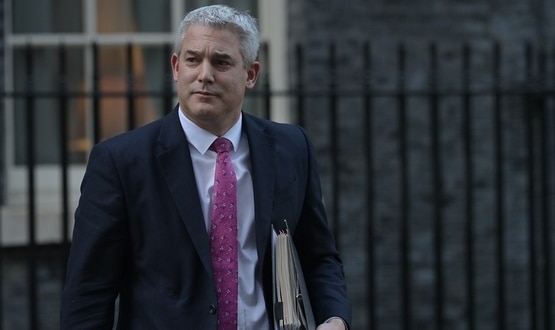The UK government will protect money for health technology from budget cuts, Secretary of State for Health Steve Barclay said on Thursday, speaking at a keynote session at the NHS Confederation Expo conference in Manchester.
“The reason I care about tech is simple: it improves outcomes and helps you do your jobs,” he said. “And let me say this: when budgets are tight, tech is often the first thing to go. That is not my approach. I am protecting the tech budget – and those key investments that will help us in the long term.”
He said the government intends to prioritise a range of investments, from “ensuring every NHS trust uses electronic patient records and investing more in bed management systems” to investing in the government’s new Federated Data Platform, for which an operating contract is expected to be managed later this year.
Government funds will also flow to “digitising the front line – from speeding up staff logins to staff passporting.” He added: “I am acutely aware that when it comes to tech it is often how we make the job of local teams easier that really matters.”
Barclay also referred to a main point of criticism highlighted Wednesday by Shadow Health Secretary Wes Streeting in his own speech to the conference: the NHS App.
He said the government is expanding the app and added: “Contrary to what you may have heard from one speaker yesterday, over 2.4 million repeat prescriptions were ordered in April alone, alongside a quarter of a million primary care appointments that were booked on the app, with numbers increasing rapidly.”
Barclay also referred to the rapidly developing sphere of artificial intelligence (AI) and said his department is looking at how it can use AI to improve patient safety in maternity services.
Tech suppliers were quick to add, however, that digital solutions must be supported by the right training for health providers and a greater emphasis on the prevention side of health.
Paul Landau CEO of Careology said: “While it’s encouraging to see the government wants to protect the tech budget, innovation in the NHS is not simply about providing technology, we also need to ensure it’s being used in the right way.
“If we want to truly transform pathways for long term conditions like cancer, we need to recognise that it is also about a cultural change and a blended approach with both digital and physical care to make the transformations that are most suited to both healthcare professionals and patients. To ensure accessible and equitable care for all individuals living with cancer, it is essential to have a well-defined and specific 10 year cancer plan that clearly outlines the strategic direction and coordination of necessary technologies and services”.
Paul McGinness, CEO of Lenus Health, also emphasised that “where and how the government delivers on this investment is even more important than the bottom line.”
“We believe there is critical missing digital infrastructure for chronic conditions. Given the well-known demographic trends around people living longer with multiple chronic conditions in the UK, transformational models of care are required that reorientate the management of chronic conditions from what is currently a reactive and expensive model to one which is proactive and preventative.” He added: “Technology can’t be imposed on the NHS – they need the training and time to be involved in a truly transformational co-design process.”

